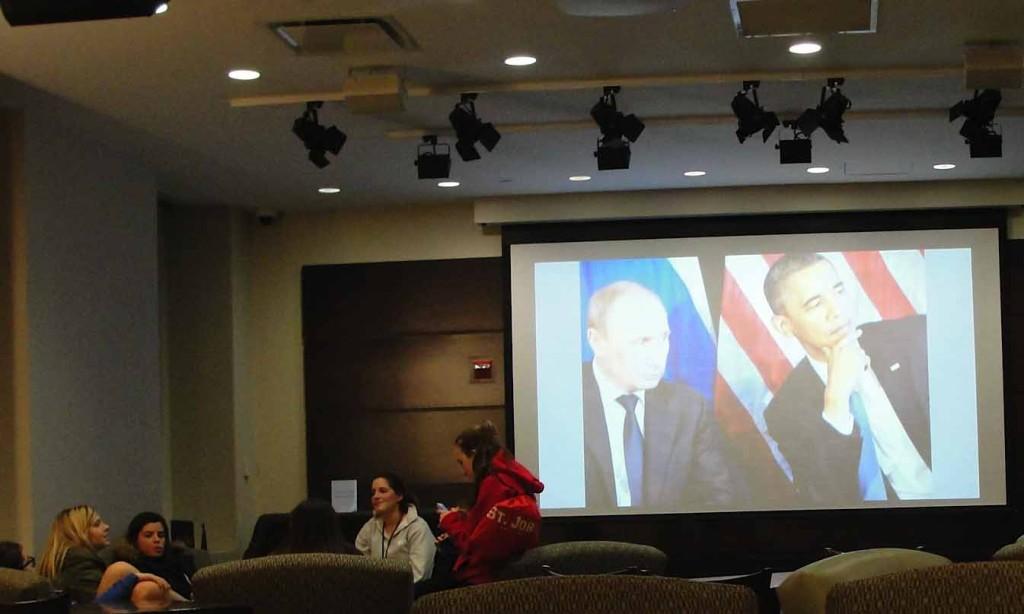Several students expressed both their delight and concern for the Sochi Winter Olympics on Thursday night during a special viewing of the first day of sporting events in the Sodano Coffeehouse.
The Sochi games come amid controversies ranging from potential terrorist threats, to journalists revealing the horrid conditions of their hotels, to apprehension over Russia’s denial of gay rights, to still unfinished construction.
Many western heads of state have snubbed the Russian government by not attending the opening ceremonies because of their concern for Russia’s human rights violations. This includes President Barack Obama, the British Prime Minister David Cameron and German Chancellor Angela Merkel.
While watching the first day of events at the viewing party, Caroline Ponce, a freshman student, pointed out that this blatant refusal to attend could possibly foreshadow conflicts that may happen over time between the western and eastern parts of the world.
“If politicians are taking a stand against Russia it could lead to other problems and even a potential third world war,” Ponce said.
Department of Homeland Security indicated a possible terrorist plot involving toothpaste tubes that could be used to hide explosives on airplanes coming into the country, according to ABC News.
In response, both Russia and the United States banned all liquids and gels from being brought into the country on carry-on luggage. As for other possible threats, officials emphasized that Sochi would be closely monitored.
Upon arriving, journalists instantly criticized the lack of hotel accommodations at Sochi. Many took to social media to demonstrate the lack of heat, wifi, clean water, and doorknobs using the hashtag #sochiproblems.
Complaints also rose about the danger of one of the slope courses. Athletes had fallen and gotten injured during practice, with one being taken out of the games completely. After many voiced concerns about the course, officials scrambled to make changes to the course. By opening night, modifications were still being made.
Many onlookers have also questioned if Russia is ready to host one of the most closely watched events in the world.
“The Olympics historically have been a time for all nations to put aside their conflicts,” Matthew Gualtieri, a fourth year pharmacy student, said. “The U.S. and Russia should put aside their conflicts to honor the spirit of competition.”
When asked for his thoughts on how these controversies could potentially impact the successfulness of the Olympics, Gulatieri was unfazed.
“Controversy makes things more exciting,” he said. “If anything people will want to watch more.”








